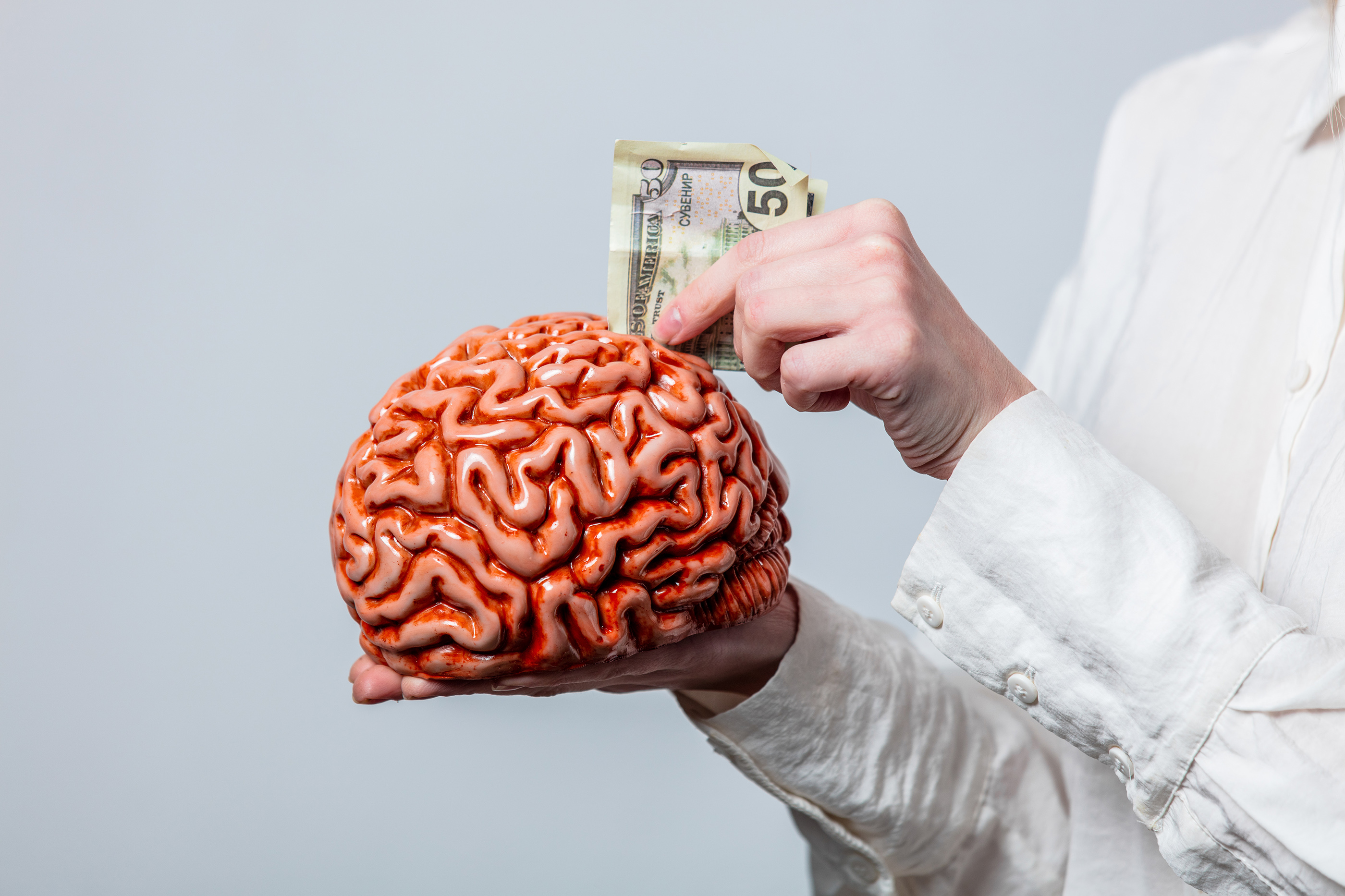
Ben Trotter
January 15, 2026
•
8 min read

We talk about money as math. But beneath every investment, every raise, or impulse buy sits a 500-million-year-old operating system: your nervous system. It decides – milliseconds before you “think” – whether a purchase feels safe, whether a risk feels thrilling, or whether you freeze and leave cash on the table.
Neuroscientists call this split-second appraisal neuroception: the body’s way of scanning for threat or safety without conscious effort.¹ Investors call it gut feeling. Whatever the label, your financial life is only as sound as the signals your body sends.
Today we’ll map the circuitry of a “wealthy” nervous system and hand you five science-backed habits to wire it into your own life – no trust fund required.
Your nervous system is like a financial trading floor inside your body. When things feel safe, the floor is calm – analysts think long-term, brokers follow the plan, and decisions are made with clarity. But when a threat hits, real or imagined, it’s chaos. Phones are ringing off the hook, people are yelling, and no one’s checking the 10-year outlook. Every decision becomes reactive. Wealthy individuals aren’t immune to this chaos – they’ve just trained their internal floor manager to step in, quiet the noise, and restore order faster. That’s the real edge.
1. Fight / Flight (Sympathetic)
When this circuit sparks, the message is “Resources are scarce, act now!” Cortisol and adrenaline flood the system, narrowing focus to immediate relief. Typical money moves:
2. Freeze (Dorsal Vagal)
Here the body signals, “Nothing you do will help.” Energy plummets, and the brain numbs out to conserve resources. Financially, this shows up as:
3. Rest & Strategize (Ventral Vagal)
This is the “wealth channel.” The body feels safe, breathing slows, and the prefrontal cortex lights up for long-term planning. In this state you’re likely to:
Key takeaway: The wealthy aren’t permanently relaxed – they’re skilled at returning to this ventral vagal state quickly. That resilience, known as vagal tone, is a trainable muscle you’ll strengthen in the next sections.

Time to practice. Choose one habit, run it for seven days, and jot quick notes on how your stress, spending, and confidence shift. Then layer in the next.

Bottom line: Wealthy people don’t rely on heroic discipline – they engineer conditions that keep their nervous system in the calm, strategic lane. Start with one habit, watch your physiology settle, and let compounded clarity do the compounding on your balance sheet.
(Think of it as strength-training for your prefrontal cortex.)

Which nervous system mode do you spend from most often? Write down one habit you’ll test this week and note how your body feels afterward.
A “wealthy” nervous system isn’t born; it’s built breath by breath, buffer by buffer, identity statement by identity statement. Master the signals, and spreadsheets become simple execution tools instead of emergency bandages.
If your nervous system is the real CFO, it’s time to train it like a pro. You already have the hardware, Brightn just helps you sharpen it. Download Brightn, create your first Nervous-System Wealth Plan, and feel your portfolio – and your pulse – steady.

Why do I panic-sell even when I “know better”?
Because cognition travels slower than cortisol. Train the body first, update the strategy second.
Can breathwork really grow my net worth?
If it keeps you from one major mistake a year, the compounding says yes.
Is stress always bad for investing?
No. Moderate sympathetic arousal sharpens focus. The edge lies in toggling back to calm when the market closes.
Related Articles
Why Budgeting Feels like Dieting (and Fails the Same Way): Constantly managing your money through willpower alone sets you up to fail. This article explains how too many daily financial decisions exhaust your mental energy – and shows how to simplify your system with automation, structure, and routines that reduce overwhelm and improve follow-through.
Financial Wellness: How Money Impacts Mental Health: Financial stress affects more than your bank account – it impacts your mood, focus, relationships, and physical health. This article explores how chronic money worries lead to emotional burnout, decision fatigue, and identity strain, while offering practical steps to build financial clarity and resilience. Learn how Brightn supports mental and financial wellness through personalized tools that go far beyond budgeting.
The Power of Self-Care: tips for taking care of your mental health: Self-care isn’t a luxury – it’s a foundation for emotional stability, mental clarity, and long-term resilience. This article offers practical, science-backed strategies to restore balance through better sleep, movement, nutrition, boundaries, and mindfulness. If your financial goals feel overwhelming, pairing them with self-care rituals can help protect your energy and prevent burnout.